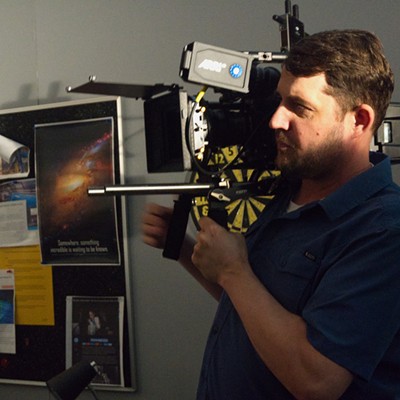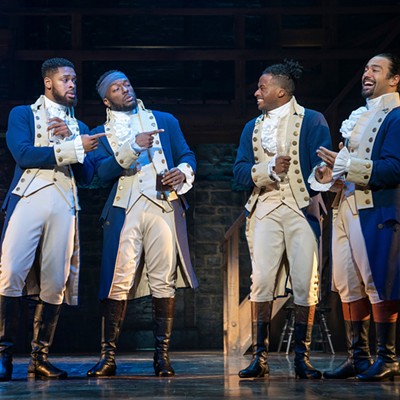Driving Miss Daisy
7:30 P.M. Today-Thursday, 8 p.m. Friday-Saturday, 2 p.m. Saturday, 3 p.m. Sunday
Lyric Theatre
1725 N.W. 16th
www.lyrictheatreokc.com
524-9312
$15-$40
Probably best known for the 1989 film adaptation starring Jessica Tandy and Morgan Freeman, Alfred Uhry's Pulitzer Prize-winning "Driving Miss Daisy" follows the development of an unlikely friendship between Daisy Werthan, an obstinate Jewish widow, and Hoke Colburn, her soft-spoken black chauffeur.
The play opens in 1948 as the 72-year-old Daisy has had her driving privileges revoked by her son, Boolie, after she wrecks her car. Boolie hires Hoke as her driver against his mother's wishes. The story follows the formation and development of a 25-year friendship between Daisy and Hoke, despite their many differences.
In Lyric's production, the pacing feels a little hampered early on by its vignette structure, but the play is frontloaded with comedic moments that go over exceedingly well and keep the audience entertained until the production finds its footing.
While both leads deliver strong performances, not all of the dramatic moments feel as solid as they should, especially during scenes where Daisy and Hoke are at odds. The connection between them is well-established, however, through a number of conversations and more subtle physical interactions. The play concludes with such an interaction, simple but bursting with meaning about the nature of aging and true friendship that'll have you in tears.
Their relationship is central to success of the play, and veteran stage actors Darrie Lawrence and Keith Johnson acquit themselves very well in the roles, even if their characterizations are pretty much what you'd expect. As Daisy, Lawrence is full of bluster and sharp wit, but hints at a vulnerability underneath a headstrong exterior.
Johnson's take on Hoke as a man that's smarter than he'd ever let on leads to a lot of understated humor. This isn't the first time for him to play the role and it shows, especially during a scene where he recounts the horrors of racial violence from his childhood.
In many ways, it's Christopher Harrod portrayal of Boolie that surprises the most. He gets a lot of well-deserved laughs, but should receive special praise for the way he illuminates juggling his responsibilities as a son, husband and businessman during the end of segregation in the South.
The static stage is divided into three areas. The lack of any set or props for the car scenes keep the focus on the actors' performances, but lead to some occasionally dodgy mime work by Johnson. Beautiful lighting changes and well-chosen music cues lend an elegance to the many scenic transitions.
An excellent cast, simple production values and a script that manages to entertain, while also exploring meaningful issues, make Lyric's production of "Driving Miss Daisy" a guaranteed crowd pleaser. "?Eric Webb










